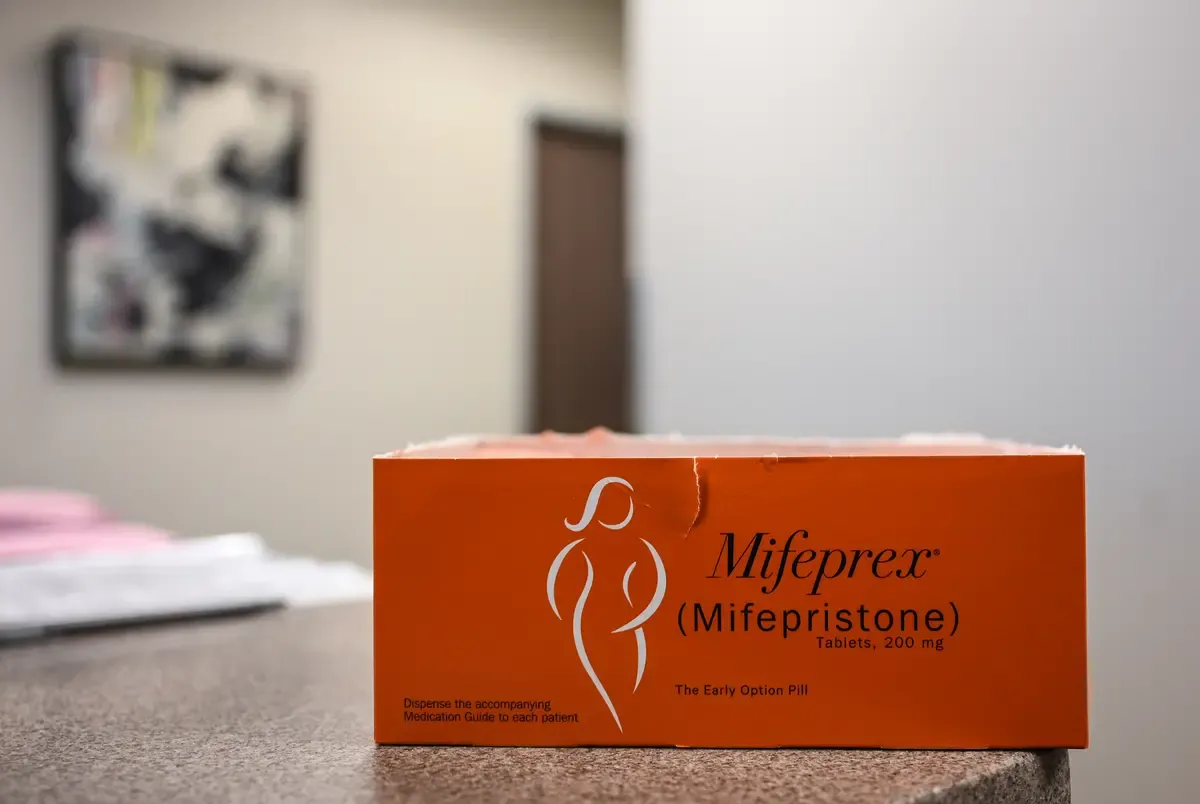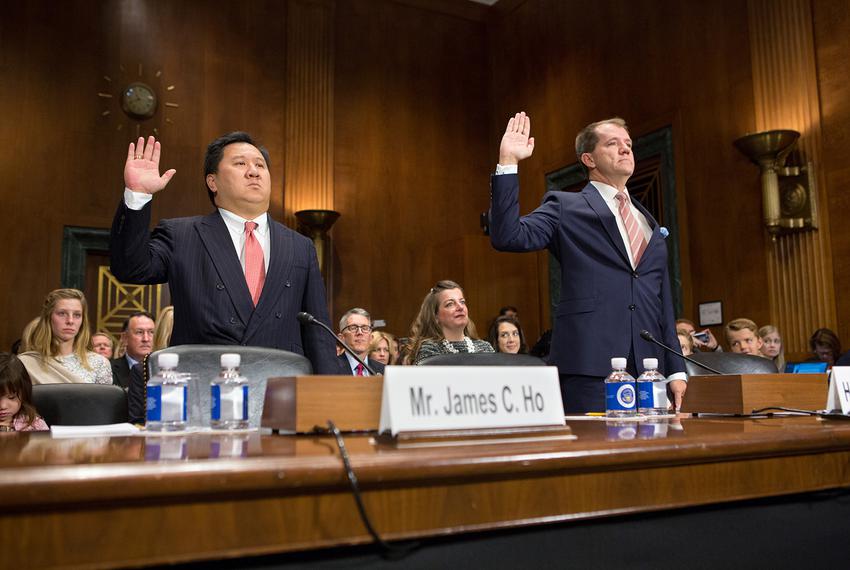Summary
- The 5th Circuit Court of Appeals upheld some restrictions on the abortion pill mifepristone, but blocked a lower court ruling that would have banned it entirely.
- A Texas federal judge had ruled earlier this year to suspend use of Mifepristone, arguing the FDA's loosening of restrictions resulted in deaths and adverse reactions.
- The appeals court said the plaintiffs lacked standing to challenge the FDA's approval of the pill back in 2000.
- However, the court agreed the FDA failed to properly assess safety risks when it eased certain restrictions in 2016.
- The 5th Circuit reinstated restrictions that were in place prior to 2016. This means the pill can no longer be prescribed remotely and mailed, but must be dispensed in person at a clinic.
- The Biden administration disagreed with the ruling and is reviewing options.
- This ruling only affects states under the 5th Circuit's jurisdiction - Texas, Louisiana and Mississippi. A judge in Washington barred the FDA from withdrawing approval nationwide.
- Mifepristone is used together with misoprostol to induce abortions early in pregnancy. It accounted for over 50% of U.S. abortions before Roe v. Wade was overturned.
- The decision could severely restrict medication abortion access in states that have moved to tighten restrictions. But it remains available in other states.
LOUISANA - This Wednesday, the 5th Circuit of Appeals ruled that the abortion pill, Mifepristone should remain restricted but not entirely banned from usage. This comes after a Texas federal judge blocked the drug entirely from the market earlier this year.
This decision, if in effect, would cut back FDA’s initiatives to make the abortion pill more accessible since 2016. Certain actions that would be restricted include receiving the pill via mail and requiring a doctor’s prescription for the drug. The three-judge panel also ruled, if in effect, would substantially limit the use of the abortion pill up to 49 days after pregnancy rather than 70 days.
The Alliance for Hippocratic Medicine, an umbrella of various anti-abortion organizations, collectively sued the FDA, arguing that the approval of Mifepristone was invalid.
Lower Texas Court Ruling
Back in April 2023, Judge Matthew Kacsmaryk from the Northern District of Texas suspended the use of Mifepristone, an abortion pill that has been approved by the U.S. Food & Drug Administration since 2000. The loosening of safeguards for the abortion pill “resulted in many deaths and many more severe or life-threatening adverse reactions,” Kacsmaryk stated.
Nonetheless, the lower court ruling to entirely remove the drug from the market resulted in controversial feedback. Last year, the Supreme Court severely restricted privacy rights to obtaining an abortion, leaving abortion access to individual states. The abortion pill, as a result, has been an alternative way to stop pregnancy growth but has led to legal challenges with accessibility.
2016 Amendments
Medication abortion has accounted for 54% of abortions and mifepristone has accounted for 98% of those abortions. Called the Risk Evaluation Mitigation Strategy (REMS), the FDA safety program considered the benefits over the risks of certain drugs with restricted-distribution programs like Mifepristone. The purpose of the REMS program is to mitigate health risks through informing and reinforcing actions or policies of the drug. By 2011, the initial REMS required the abortion pill to be dispersed in-person by a certified physician in a physical clinic and mandated a follow-up appointment.
However, as early as 2016, the FDA favored policies to lessen restrictions for greater accessibility for abortion pills like Mifepristone. With approval for a new regimen and drug label for Mifepristone, the FDA expanded the use of the pill as late as 70 days into pregnancy and broadened the provider from certified physicians to nurse practitioners, physician assistants, or equivalent.
By 2019, the FDA approved a generic version of the abortion pill, which increased supply of the drug. And in 2021, the Administration removed the in-person dispensing requirement for Mifepristone and expanded the distribution to include certified pharmacies.
By the beginning of 2023, the FDA lessen restrictions by allowing pharmacies certified by manufactures to directly disperse the pill to patients without the need of a provider.

5th Circuit of Appeals Ruling
Before the Texas district court’s ruling could take effect, the Supreme Court, in an emergency stay application, allowed the abortion pill remain in the market while the 5th Circuit of Appeals published its ruling which happened this Wednesday.
In a 2-1 decision, the 5th Circuit of Appeals in part ruled against the Texas ruling, arguing that the plaintiffs did not have standing to challenge the FDA’s drug approval back in 2000. This was also because the statute of limitations for civil action was only 6 years despite the plaintiffs’ efforts to evade the time limit.
The anti-abortion organization, which consists of medical doctors and physicians, further contended that the FDA failed to comply with the Administrative Procedure Act, a law which requires federal courts to “hold unlawful and set aside agency action, findings, and conclusions found to be arbitrary, capricious, an abuse of discretion, or otherwise not in accordancewith the law.” This requires that agency action, which are the FDA’s 2016 amendments, be reasonable and reasonably explained.
The Court found that the FDA did not consider the cumulative effect of the 2016 Amendments when it loosened the requirements for the abortion pill. The Court found the agency relied on zero studies that evaluated the safety-and-effectiveness consequences of the 2016 Major REMS Changes as a whole and did not acknowledge the altering of the risk profile.
Further, the panel stated that while the FDA Adverse Event Reporting System (FAERS), a voluntary reporting website, prescribers are not required to log non-fatal adverse events. The FDA admits that FAERS reporting is purely voluntary, and consequently, many adverse events will go unreported. For example, one doctor testified that she obtained adverse-event data from one provider (Planned Parenthood) and compared it to FAERS data for the same time period. For 2010, the provider reported 1,530 adverse events, whereas FAERS reported only 664 events for all providers nationwide.
The Court also acknowledged that the plantiffs face “a substantial risk of irreparable harm to their medical practice, mental and emotional health, and conscience.” As a result, the Court argued that no legal remedy that the Court provides can redress the economic, monetary, or conscience injury that the doctors were harmed.
The 5th Circuit concluded that the form of just remedy is to expunge the 2016 and 2021 FDA Amendments that loosened enforcement and increase accessibility to patients. However, companies like GenBioPro can continue to market and sell the generic version of mifepristone under the conditions appeared in the 2011 REMS. The in-person dispensing requirements, and FDA’s obligation to enforce them, will continue to apply.
It is unclear whether the Supreme Court will hear arguements and form a national ruling. If the Supreme Court refuses to hear the case, the ruling from the 5th Circuit will likely be the stand alone ruling. This ruling, however, does not effect 18 states that are outside of the 5th Circuit’s jurisdiction. An order by a federal judge in Washington state bars the FDA from withdrawing Mifepristone from the market, making the drug still widely accessible in those 18 states. The conflicted decisions from the Washington judge and the 5th Circuit’s ruling is criticized, with Supreme Court Justice Alito acknowldging this “regulatory chaos”.
“We strongly disagree with today’s ruling from the Fifth Circuit Court of Appeals in Alliance for Hippocratic Medicine v. FDA, which undermines FDA’s scientific, independent judgment and reimposes onerous restrictions on access to safe and effective medication abortion.” a spokesperson for the White House said.





